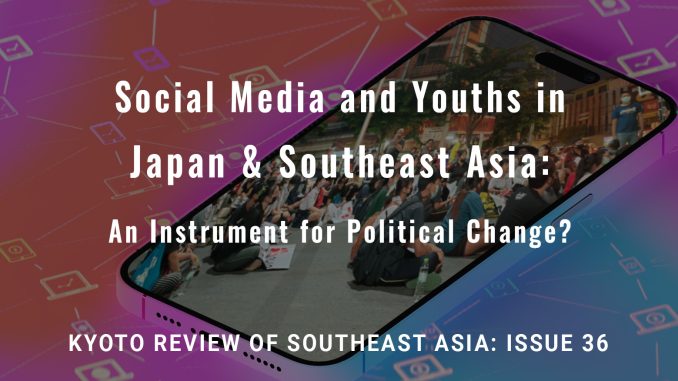
Much of Southeast Asia’s political domain has long been dominated by authoritarian/semi-authoritarian regimes. Part of their success in maintaining power was the ability to control the mainstream media, shaping the way in which information is shared, circulated, and manipulated. For a long time, both print and broadcast media were exploited to serve a variety of political purposes of these states. Because of the need to justify their existence, the media became an important component in guaranteeing their political staying power. Alongside other powerful tools, such as education and state propaganda, the media has been used to strengthen political regimes, and this sometimes dampens or stokes political conflicts particularly when used to alienate those thinking differently from the regimes.
Over the past decades, however, Southeast Asia has changed immensely, as is evident by its impressive economic growth, the growing middle class and globalization – all of which have significantly transformed the way the media has acted and reacted to political developments. At the same time, Southeast Asia has encountered different types of political crisis, from military coups to relentless political violence. While political leaders have continued to rely on the controlled state media to shape information and to control discourses, the society, particular among its young members, has taken advantage of the growing variety of new media outlets to propagate their own information, and more importantly, to diminish the state’s control over information. This in turn is likely to diminish the state’s monopoly of power and can lead to political change.
This issue discusses the rise of social media among Southeast Asian youths and its impact on the political landscape in this critical period. The key question is: How do Southeast Asian youths use social media as a tool for political change?

According to GWI (Global Web Index), across Southeast Asia, people aged 16 to 24 spend roughly 60 percent of their daily lives online, or an average of more than 10 hours per day using internet-connected devices. This means, they spend close to 3 full days using the internet every week. Young women spend even longer online than their male counterparts, nearly 10½ hours online each day. From Facebook, Twitter, Instagram, Telegram, to Clubhouse and Tiktok, these social media platforms are providing a useful venue that enables Southeast Asian youths to contest the state, particularly for the purposes of online mobilization and protests as well as encouraging critical discussions.
How has social media contributed to opening up society under an authoritarian environment? First, social media is relatively free and unrestrained, and decentralises sources of information, making the state’s control of the media increasingly irrelevant as a news source. Second, social media is increasingly used as a stage for political campaigns, as seen in the establishment of numerous political groups with specific agendas and clienteles, from the Philippines, Thailand to Myanmar and Vietnam. Third, social media reintroduces a participatory element that is fundamental to the process of democratisation. Participating in politics no longer exclusively means going to the polling station or joining street protests — which are absent or even illegal in some Southeast Asian states now. But it can be done online and possibly more effectively. Fourth, social media has become a forum for critical discussion, dealing with contentious issues that are otherwise unable to be discussed in the mainstream media. It has provided a useful platform for alternative media, which today offers information different from that provided by the state.
In this issue, we invite scholars from six countries from Japan and selected Southeast Asian nations (basically, ASEAN-5)—Indonesia, Malaysia, the Philippines, Singapore, and Thailand—to present the case on the role of their respective countries’ youths in using social media to push for political change. Their papers are the outcome of our 46th Southeast Asia Seminar, which was organised on February 16, 2023, at CSEAS, Kyoto University. Two of the participants, myself and Haris Zuan, also joined the same panel at King’s College, Cambridge University, organised by the Cambridge University Southeast Asian Society, on February 20, 2023, together with an added contributor, a speaker from Singapore, Yeo Nee Win, who is a PhD candidate at King’s College London. This panel was a collaboration between CSEAS and Cambridge University. The panelists focused on three countries: Thailand, Malaysia and Singapore.
As an editor of this issue, I would like to thank our director, Fumiharu Mieno, for gracing and supporting this endeavour. I would also like to thank the seminar team, Prof. Caroline Hau, Prof. Okamoto Masaaki, and Assoc Prof. Mario Ivan Lopez, and six young researchers (Hiroki Baba, Kisho Tsuchiya, Chika Yamada, Julie Ann de los Reyes, Takamichi Serizawa, and Wu Yunxi), as well as the CSEAS staff who made the seminar a success, especially Masako Akedo, Motoko Kondo, and Yumiko Tsuchikura.
Pavin Chachavalpongpun
Editor
Editor of Kyoto Review of Southeast Asia
Main Articles in Seven Languages

Article 1
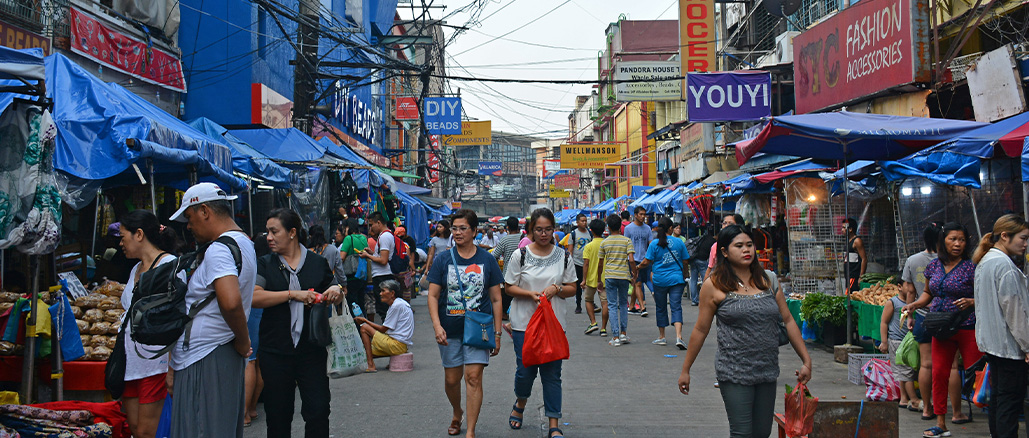
Political Participation Through Social Media by Japanese Youth
Partisipasi Politik Kaum Muda Jepang melalui Media Sosial
การมีส่วนร่วมทางการเมืองผ่านสื่อสังคมออนไลน์ของเยาวชนญี่ปุ่น
Tham gia chính trị thông qua các phương tiện truyền thông của thanh niên Nhật Bản
Pampolitikang Pakikilahok ng Kabataang Hapones sa Pamamagitan ng Social Media

Strength of Weak Ties: Youth & Digital Politics in Indonesia
Kekuatan Ikatan Yang Lemah: Kaum Muda & Politik Digital Di Indonesia
จุดแข็งของสายสัมพันธ์แบบอ่อน: เยาวชนกับการเมืองดิจิทัลในอินโดนีเซีย
Sức mạnh của những mối quan hệ yếu: Thanh nhiên và chính trị kỹ thuật số ở Indonesia
Lakas ng Mahihinang Ugnayan: Ang Kabataan at Politikang Digital sa Indonesia

Potentials and Challenges of Social Media as an Instrument for Political Change in Malaysia
Potensi dan Tantangan Media Sosial sebagai Instrumen Perubahan Politik di Malaysia
ศักยภาพและความท้าทายของสื่อสังคมออนไลน์ในฐานะเครื่องมือเพื่อการเปลี่ยนแปลงทางการเมืองในมาเลเซีย
マレーシアにおける政治改革の手段 ソーシャルメディアの可能性と課題
Tiềm năng và Thách thức của truyền thông xã hội như một công cụ để thay đổi chính trị ở Malaysia

Mobilizing yet Polarizing: Social Media Youth Engagement in the 2022 Philippine Elections
Memobilisasi sekaligus Memolarisasi: Keterlibatan Pemuda di Media Sosial dalam Pemilu Filipina 2022
ปลุกคนแต่แยกขั้ว: บทบาทเยาวชนกับสื่อสังคมออนไลน์ในการเลือกตั้งฟิลิปปินส์ปี 2022
動員と二極化をもたらすソーシャルメディア フィリピン2022年選挙への若者の参加

Fear of Missing Out and Online Political Engagement: The Case of Singapore
Takut Ketinggalan Zaman (Fear of Missing Out, FOMO) dan Keterlibatan Politik Daring: Kasus Singapura
“กลัวพลาดตกขบวน” กับการมีส่วนร่วมทางการเมืองในโลกออนไลน์: กรณีสิงคโปร์
取り残される不安(FOMO)とオンラインの政治的関与: シンガポールの事例
Nỗi sợ bỏ lỡ và Sự can dự chính trị trực tuyến: Trường hợp của Singapore
Ang Takot na Mapag-iwanan at ang Politikal na Pakikisangkot sa Online: Ang Kaso ng Singapore
မပါဝင်လိုက်ရမည်ကို စိုးရွံ့ခြင်းနှင့် အွန်လိုင်းတွင် နိုင်ငံရေးအရ ပါဝင်မှု – စင်္ကာပူကို လေ့လာခြင်း
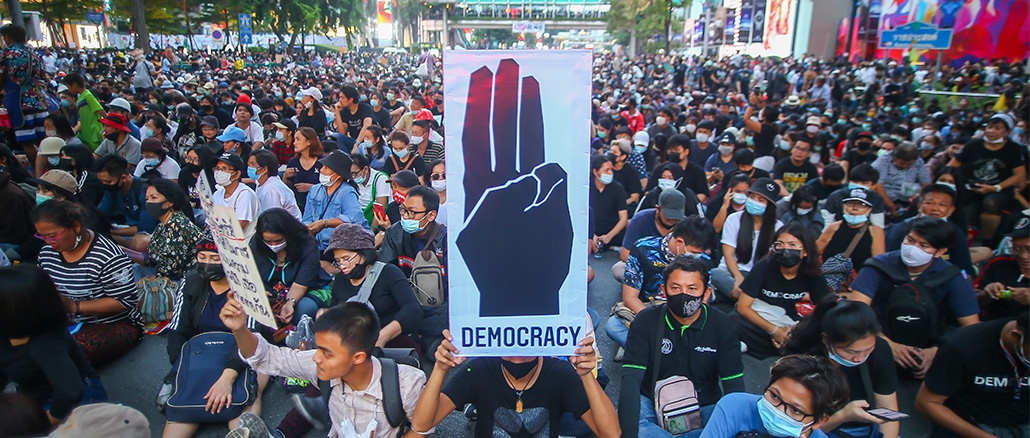
OppStruction: Opportunity Structure and its Implications on the Pro-Democracy Movement in Thailand
Oppstruction: Struktur Kesempatan dan Implikasinya terhadap Gerakan Pro-Demokrasi di Thailand
โอกาสและอุปสรรค: โครงสร้างทางโอกาสและผลพวงที่มีต่อขบวนการฝ่ายประชาธิปไตยในประเทศไทย
「OppStruction(機会障害)」:機会構造とタイ民主化運動への影響
OppStruction: Kiến tạo cơ hội và Những Hàm Ẩn về Phong trào Dân chủ ở Thái Lan
Book Reviews from Issue 36 Kyoto Review of Southeast Asia, (September 2023)
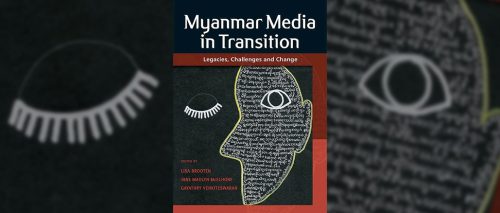 Myanmar Media in Transition: Legacies, Challenges and Change Myanmar Media in Transition: Legacies, Challenges and ChangeAuthors: Lisa Brooten, Jane Madlyn McElhone, & Gayathry Venkiteswaran Publisher: ISEAS Yusof Ishak Institute, Singapore 2019. Reviewed by Ashley South |
 Theatres of Memory: Industrial Heritage of 20th Century Singapore Theatres of Memory: Industrial Heritage of 20th Century SingaporeAuthors: Loh Kah Seng, Alex Tan Tiong Hee, Koh Keng We, Tan Teng Phee, & Juria Toramae Publisher: Ethos books, Singapore, 2021 Reviewed by Hamzah Muzaini |
 I was the President’s Mistress!! I was the President’s Mistress!!Author: Miguel Syjuco Publisher:New York: Farrar, Straus and Giroux, 2022. 384 pp Reviewed by Joel Pablo Salud |
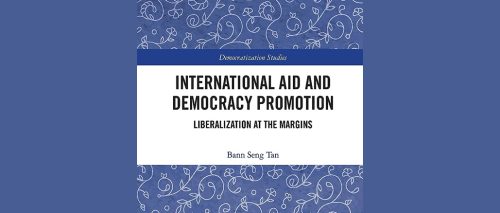 International Aid and Democracy Promotion: Liberalization at the Margins International Aid and Democracy Promotion: Liberalization at the MarginsAuthor: Bann Seng Tan Publisher: Routledge, 2021 Reviewed by Patrick Strefford |
 Myanmar’s Political Transition and Lost Opportunities (2010-2016) Myanmar’s Political Transition and Lost Opportunities (2010-2016)Author: Ye Htut Publisher: ISEAS Publishing, 2019 Reviewed by Nicholas Farrelly |
